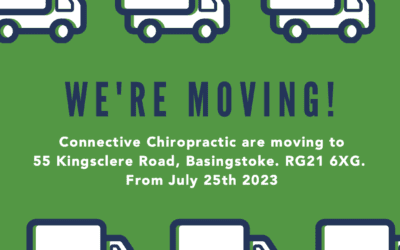Tips to get a better night's sleep (Sleep tips series 1/6)
It’s easy to forget that we spend a large portion of our life in bed. How we posture ourselves during our slumber can influence our body when we are awake.
As a result, we wanted to create a series of blogs and vlogs to explain some of the basic tips you may want to follow to support yourself whilst in Slumberland.
As always, if you need more information you can contact us or book in to see us.
What is being covered during the Sleep Tips series?
In this blog we will cover the basic advice on your sleep routine and general set up.
The next blog, actually a vlog, will give tips for sleeping on your front.
Following that we will additionally cover sleep tips for sleeping on your side and sleep tips for getting good posture whilst on your back. We’ll also give a video about some general considerations you may want to take before changing your sleep posture. For humour, and also because it is relevant, we will also discuss the dangers of letting your partner sleep on your arm in bed too!
Part One: General sleep tips and considerations
Why is good sleep important?
Sleep deprivation can lead to numerous health conditions. This can include musculoskeletal issues, but also more wide-reaching medical issues too. There is evidence to suggest, for example, that sleep deprivation can affect mood, attention span, cognitive ability as well form a contributing factor towards increased stroke, heart disease or diabetes risks.
Get a routine for good sleep
When we say you need to get a good routine, what we really mean to say is that you need good sleep hygiene.
This means making sure the environment you are sleeping in is clean and clear of clutter. (It’s not great if you have to work, eat and sleep in the same space too. Tidying up, at least, can help here if you have to do this.) It also means making sure your body is ready to sleep. Turning off electrical devices and giving your brain and body chance to unwind before bed is wise. Not eating heavy meals before bed is also sensible. Check out the sleep council website for mote info about what you can do to improve your sleep hygiene.
Do you have everything you need for a good night’s rest?
It surprising how many times we are asked about the real basics, so we wanted to include a section in here to do with this. We recommend sleeping in a bed, with a mattress and a base. You’ll also need covered pillows and a duvet or sheets. We suggest having a headboard also.
We do not recommend sleeping on the floor or sofa for long periods of time, even if they may at first seem more comfortable. Sofa-beds are less preferred as they tend to be less stable than usual beds.
What mattress or pillows should I buy?
A mattress should usually last between 7-10 years before it needs to be replaced. Good questions to ask yourself if you are thinking to change your mattress are whether you find yourself sleeping better in other beds or are noticing a sag in the middle of the bed. Connective Chiropractic does not recommend any one particular brand. We note, following a recent internal clinical audit of patient records, that there was not a correlation between any one particular type of mattress or firmness with back pain. We believe firmness should be selected based on preference and comfort, though our general advice is that one that is firmer tends to have more support. If you are still unsure whether you need to change your mattress, take a Bed MOT.
Pillows should be replaced more frequently as standard. We find that cheaper pillows tend to need to be checked and replaced more frequently, as you would expect. We would recommend finding pillows that both feel comfortable and offer support. You do not want them to be too high or too small. Connective Chiropractic does not recommend any one particular brand.
What should you do after getting up to help your body most?
When you get up, you should stretch yourself out. Don’t forget your bed though. Make sure you change your sheets regularly and let the bed breathe before covering it up for the next evening.
Click here for the next sleep tips blog
Sleeping on your front
The Author and Sleep tips vlog speaker
Dr James Harrison (Chiropractor)
LL.B(Hons), MChiro, MMCA, LRCC
Owner and Principal Chiropractor at Connective Chiropractic
Please visit the links in this blog post for additional references and support. Did you know statistics from www.sleepcouncil.org
Connecting chiropractic and stress reduction
Did you know that chiropractic can help with the inability to relax? In today's fast-paced world, stress has become an unavoidable part of daily life for many people. Whether it's due to work pressures, financial worries, relationship issues, or other factors, stress...
Starting your journey with us at 55 Kingsclere Road: Getting to Connective Chiropractic
Get directions to our clinic before you start your journey Getting our address or contact details is one thing, knowing what to expect when you get here, or whether you are in the right place, is another. To take the stress out of your journey, we've decided to create...
Connective Chiropractic are moving to 55 Kingsclere Road in Houndmills, Basingstoke
We are moving to 55 Kingsclere Road from 25th July 2023 After a long time of promises, we are finally moving our clinic! On 25th July 2023 we will be moving from our Arena Business Centres site in Basing View and launching at our Houndmills site. The cutting of the...
BASINGSTOKE
Connective Chiropractic Ltd,
55 Kingsclere Road,
Basingstoke.
RG21 6XG
01256 639 452

EMPOWERING WELLBEING WITH A CONNECTIVE CHIROPRACTIC MEMBERSHIP
Click here to discover more about our Ultimate Wellbeing Community
Registered Company (10788728) in England & Wales, Registered Address: 55 Kingsclere Road, Basingstoke, Hampshire. RG21 6XG.
Site content last edited 11 September 2023 (Version 1.4) (Version 1.0 - 1st November 2017). Last update Monday 11 September 2023
Copyright: Connective Chiropractic Ltd. All rights reserved. The Connective Chiropractic name and Connective Chiropractic logo are registered trademarks.



